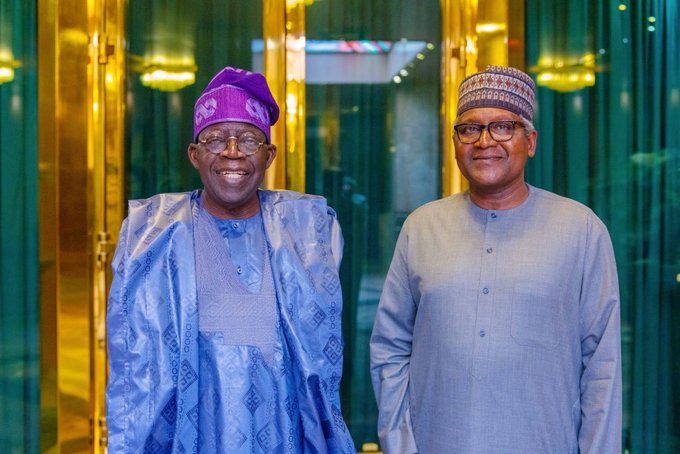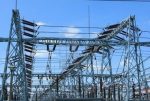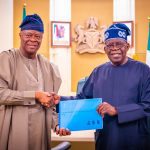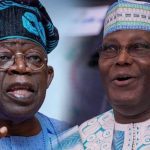Why Tinubu Should End Fuel Subsidy Now – Dangote

The Federal Government led by President Bola Tinubu has been called to end fuel subsidies completely.
The call was made by the President and Chief Executive of Dangote Group, Alhaji Aliko Dangote, on Monday.
He said the removal would help determine the actual petrol consumption in the country.
Dangote also stated that fuel production from his $20bn mega refinery in Lagos will help ease pressures on the naira. The refinery can refine 650,000 barrels of crude oil daily.
He spoke in a 26-minute interview with Bloomberg Television in New York on Monday.
Dangote added that now is the right time to end fuel subsidies, noting that ending petrol imports will have a huge upside in easing currency pressures.
He said, “Subsidy is a very sensitive issue. Once you are subsidising something then people will bloat the price and then the government will end up paying what they are not supposed to be paying. It is the right time to get rid of subsidies.
“But this refinery will resolve a lot of issues out there, you know, it will show the real consumption of Nigeria, because, you know, nobody can tell you. Some people say 60 million litres of gasoline per day.
“Some say, it’s less. But right now, if you look at it by us producing, everything can be counted. So everything can be accounted for, particularly for most of the trucks or ships that will come to load from us. We are going to put a tracker on them to be sure they are going to take the oil within Nigeria, and that, I think, can help the government save quite a lot of money. I think it is the right time, you know, to remove the subsidy.”
READ ALSO
•Reactions As Bandit Calls For Nigerians Support To Kidnap President Tinubu (Video)
•Hardship In Nigeria Getting Out Of Control- Abdulsalami Tells Tinubu
Dangote who recalled the challenges faced after the project’s launch in 2013, experiencing a five-year delay due to issues with state government and host communities and a running loan of $2.4bn, said he is personally proud to achieve the feat.
On whether the subsidy will make the refinery viable, Dangote said, “Well, you see, we have a choice of either one. We produce, we export, and when we produce, we sell locally. But we are a big private company. And yes, it’s true, we have to make a profit. We build something worth $20bn so definitely we have to make money.
“The removal of subsidies is totally dependent on the government, not on us. We cannot change the price, but I think the government will have to give up something for something. So I think at the end of the day, this subsidy will have to go.”
He added, “Petroleum products consume about 40 per cent of our foreign exchange.”
Dangote during the interview, disclosed the details of the pricing disagreement that occurred with the Nigerian National Petroleum Company Limited.
According to him, the national oil company bought its current stock from the refinery at a cheaper price than its imported fuel but gave a uniform price for all products.
“There wasn’t really a disagreement, per se. NNPC bought from us on the 15th of September at the international price, which they also bought, about 800,000 metric tons of gasoline imported. So the one that they bought from us actually is cheaper than the one they are importing.
“And so when they announced our price, the guy, I don’t know whether he was authorized. It wasn’t really the real price. What they have announced is most likely that is what it cost them, including profit and other expenses.
“And then the other one is one that they imported. But the people don’t know how much they spend in terms of imports, but their importation is almost, maybe about 15 per cent more expensive than ours, you know.
“So what they are supposed to do is to sell at a basket price, or if they want to remove subsidy, they can announce that they will remove subsidy, which is okay, everybody you know will adjust it.”

Kazeem Badmus is a graduate of Mass Communication with years of experience. A professional in journalism and media writing, Kazeem prioritses accuracy and factual reportage of issues. He is also a dexterous finder of the truth with conscious delivery of unbiased and development oriented stories.









